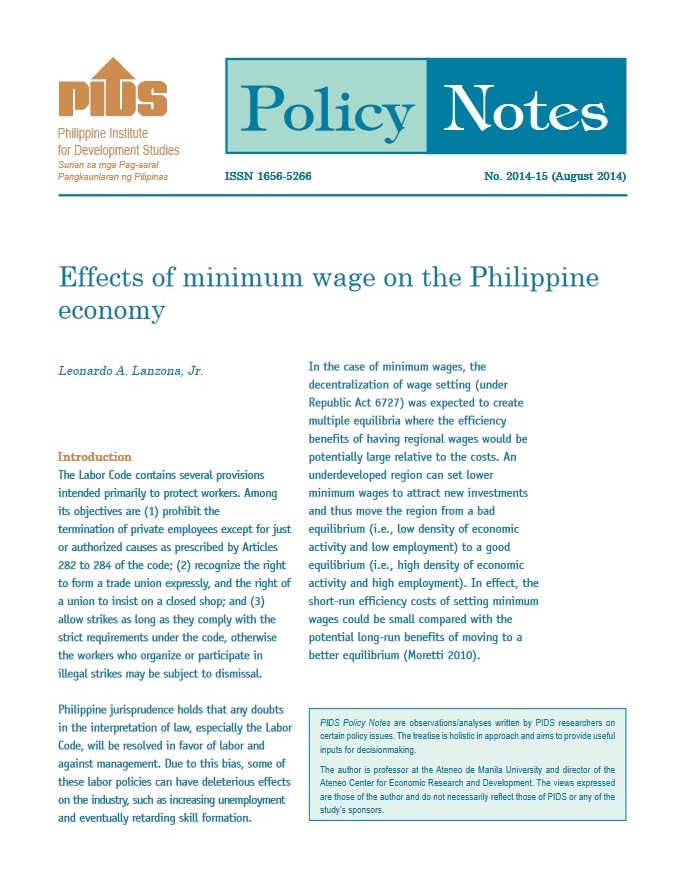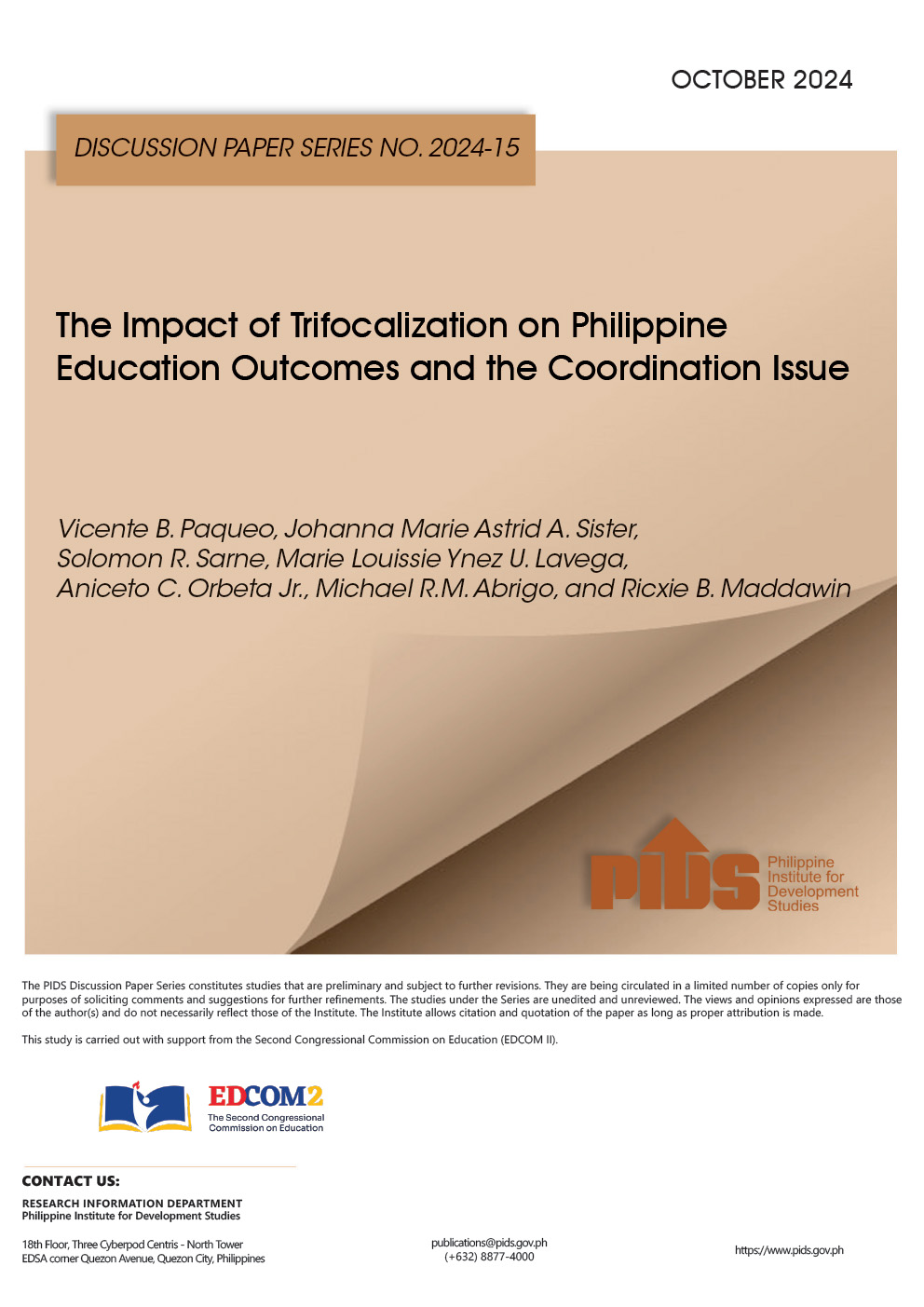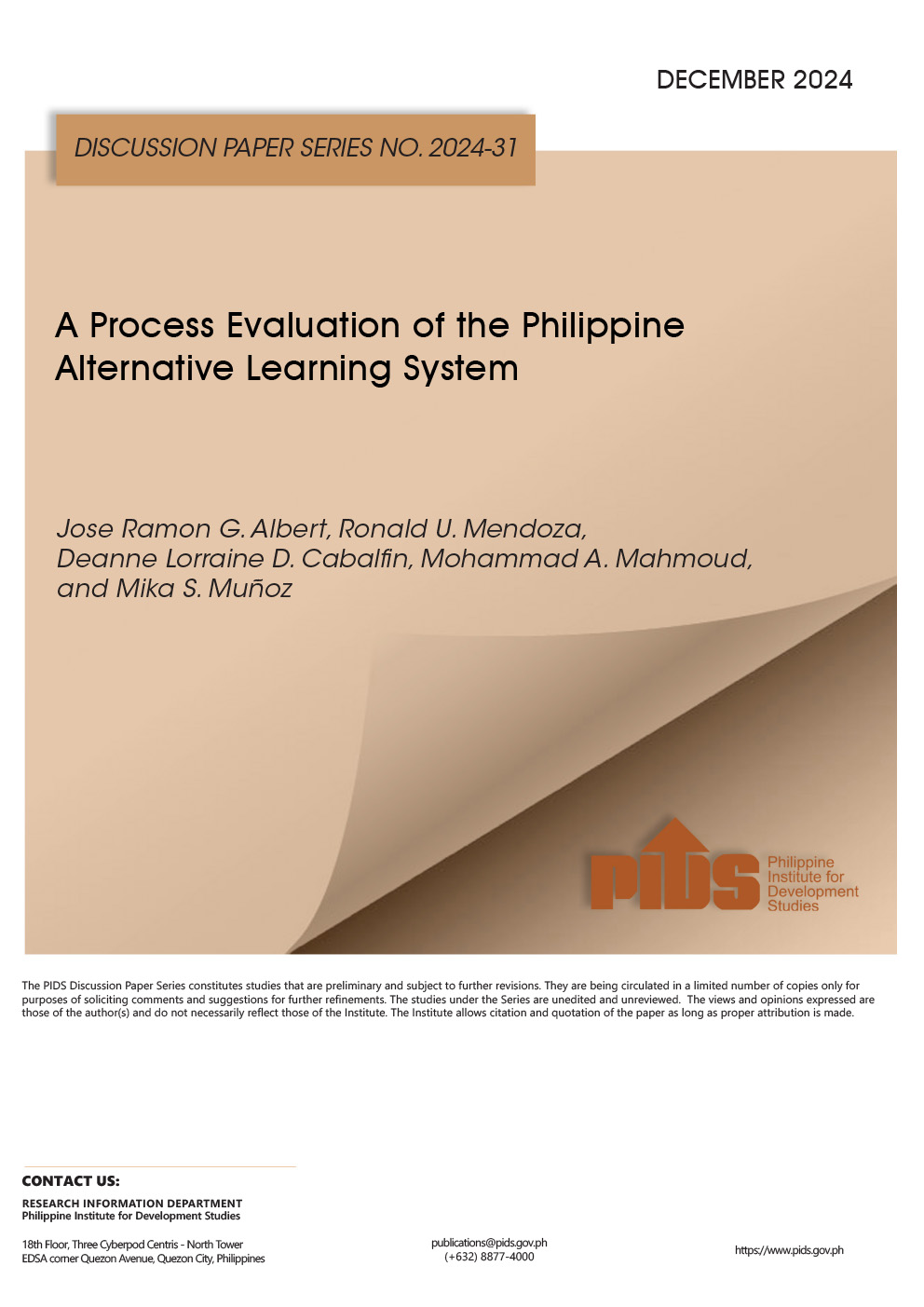This Policy Note presents the results of a study that explores the effects of labor policies on the industry. In particular, it examines the minimum wage policy by disentangling and controlling various factors that may confound the effects of minimum wages on employment. Using various econometric methods, the study finds that the minimum wage policy reduces employment in small firms. It causes small firms to reduce their production workers. The negative impact of minimum wages emanates from scale effects. Because of greater marginal costs, it is difficult for small firms to mature into larger-scale firms. In the process, the production and the demand for production workers decline. With the decline of small-scale firms, larger firms are able to acquire more production workers, presumably at starting wages lower than what experienced workers would have received in smaller firms. These firms are not able to rehire all the laid-off workers, and the poorer workers who may need cash in the short term may find these arrangements inferior to their previous jobs. Furthermore, because of the minimum wages, firms are reluctant to hire younger, less educated, and female production workers. To minimize costs, increasing training for these younger and less educated production workers may no longer be an option as minimum wages rise. These findings may have serious consequences in the way the Labor Code affects production efficiency, as well as social protection. There is thus a need to coordinate these policy areas in a way that reinforces one another.













